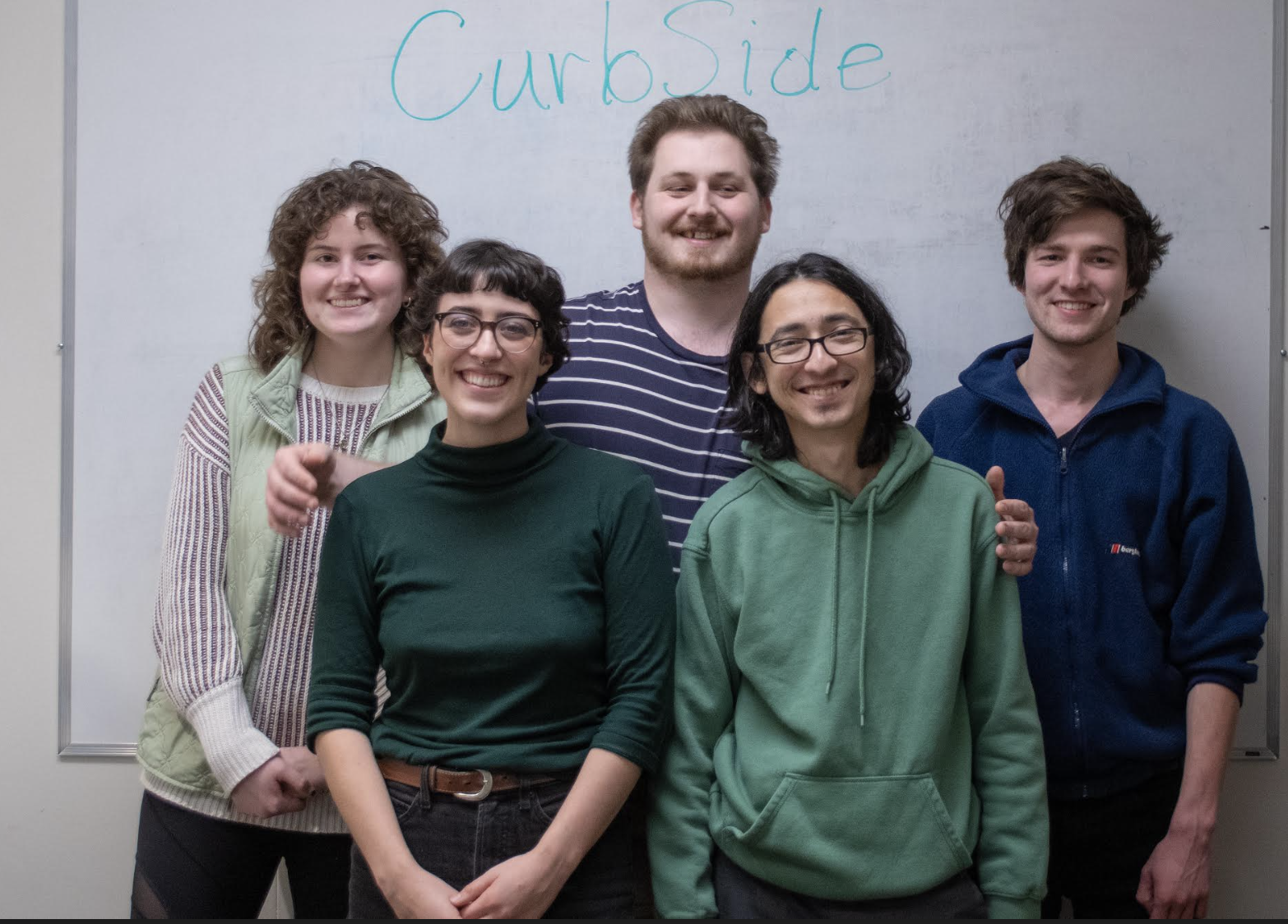
The group that formed Curbside Farms started out as a campus club in support of proportional representation and wound up as a worker co-op devoted to urban food production. The founders agree they didn’t envision their project would take this circuitous route when they started, but they have no regrets.
“In terms of anticipating that we’d be here? No. That is the short answer,” says cofounder Eric Buhne. “Not at all. But I’m glad that we are.”
Buhne helped found the campus club in question, known as Fair Vote, to advocate for proportional representation in advance of a 2018 provincial referendum on the issue. Although the referendum failed, the group remained intact, shifting their focus briefly to the issue of co-op housing before deciding to engage in co-operative food production instead.
Originally created with the intention of assisting people in using boulevard space for food production, Curbside is also involved in helping build household garden beds from upcycled materials, and providing other forms of gardening advice and assistance. They’ve organized various events and workshops as well.
Cofounder Ian DeJong says the Co-op’s founders were drawn to urban food production for multiple reasons.
“We think that this, in the long term, has the potential to be a basis for a sense of well-being for members that’s hard to come by in this world otherwise,” he says. “So there is a sense of meaning, a sense of being connected to the earth, and we think growing food is a good avenue into that. And also being closer with the people who you live near is a good avenue into that.”
On a more practical level, the Co-op’s emphasis on urban food production aims to address issues of food insecurity facing many people in Victoria, given its location on an island that relies heavily on imported food. While Buhne and DeJong laud the growing movement behind small-scale regenerative farming on the island, they believe that supporting Victoria residents to grow their own food is also important.
“We need professional farmers,” says Buhne. “We also think that’s not necessarily enough to get us to where we need to be. So we want to empower people that don’t grow food for money that just do this as a hobby or a pass-time to develop those skills.”
The Co-op got an introduction to the wider co-operative sector at CWCF’s November, 2022 Conference in Vancouver. Although joining CWCF wasn’t initially part of the plan, Buhne says the sense of connection he and another founding member, Sonja Pinto, experienced at the Conference made clear it was the right decision.
“It’s exciting to be in a room with a bunch of people that could in some way be seen as competitors, but it’s not like that at all,” says Buhne. “It’s like one big community coming together.”
Continuing to build on this sense of community will be a priority for Curbside in the coming years as it seeks to expand its membership and infrastructure, while retaining its personal connection to those it supports.
“People are excited to learn, people are excited to explore,” says Buhne. “And It’s really fun to help facilitate that experience for people and see them get excited about food growing, about community.”